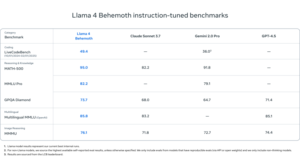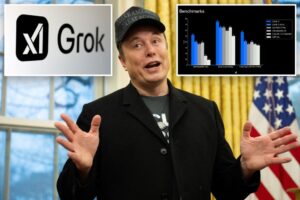Exploring Amazon’s Swift Reaction to DeepSeek

Amazon’s Response to DeepSeek’s Emergence
In late January, the tech industry was shaken by DeepSeek, a Chinese AI model that gained rapid popularity among companies looking for access through Amazon’s Bedrock development tool. Amazon reacted quickly by integrating DeepSeek into Bedrock. Employees expressed surprise at the speed of the approval process, which was indicated by CEO Andy Jassy as a necessary response to customer demand.
The introduction of DeepSeek led to significant internal changes at Amazon, affecting product updates, sales strategies, and development initiatives. This highlighted how swiftly new advancements in artificial intelligence can compel even large tech companies to adapt their strategies. Competitors like OpenAI, Google, Meta, and Microsoft also had to reassess their positions in light of DeepSeek’s impact.
An Amazon spokesperson emphasized that the company’s long-standing strategy has been to provide secure access to innovative models through Amazon Web Services (AWS). This approach aims to give customers control over their data to facilitate customized generative AI applications, including their swift integration of DeepSeek.
Privacy Concerns Surrounding DeepSeek
DeepSeek’s powerful capabilities and affordability disrupted the tech market, leading to a decline in tech stock values as investors raised concerns over the extensive spending by US tech firms on computing resources. In response, Amazon has continued enhancing its offerings related to DeepSeek. Recently, the cloud giant made it easier for users to access DeepSeek’s reasoning model, along with a fully managed service equipped with built-in security and monitoring features.
Noah Berger
Internal Discussions at Amazon
DeepSeek’s rapid rise has sparked numerous discussions within Amazon. One critical aspect discussed has been how to position AWS against DeepSeek. Internal guidance recommends highlighting privacy and security concerns related to DeepSeek while promoting AWS’s Nova AI models as a safer alternative. AWS emphasizes that customer data remains secure and isn’t shared with model providers when using Bedrock.
The guidelines address multiple aspects, such as how DeepSeek collects user data and may store it on servers in China, raising privacy flags among customers. AWS is encouraging employees to suggest using Nova AI models that are known for their speed and security, benefitting from AWS’s responsible AI standards.
Competing with DeepSeek
AWS is in the process of designing a new reasoning model to better compete with DeepSeek’s R1 model. Although AWS has been working on this for some time, the emergence of DeepSeek has intensified the urgency to expedite its completion. There are also efforts to study and apply some of DeepSeek’s advanced training methods to enhance AWS’s own offerings.
Noah Berger
Feedback from Leadership
During a recent earnings call, Andy Jassy shared that Amazon was intrigued by many of DeepSeek’s training methodologies. Techniques such as alterations to reinforcement training sequencing and improvements in inference processes have caught the attention of Amazon’s leadership.
Employee Engagement and New Initiatives
After DeepSeek’s introduction, Amazon employees created an internal Slack channel, “Deepseek-interest,” which quickly attracted over 1,300 participants. Inside, employees expressed surprise at the minimal resistance to adopting DeepSeek, given its origin from China. Some sought recommendations for AWS’s in-house chip platform, Neuron, to better support DeepSeek.
Furthermore, Amazon organized a learning session about DeepSeek, aimed at informing staff about AWS’s messaging and competitive advantages. As the pace of AI advancements continues to escalate, it’s noticeable that Amazon is shifting its focus, with some employees suggesting consideration of alternative Chinese AI models, signaling the fast-moving nature of the AI landscape.
Internally, there are now recommendations to minimize the use of DeepSeek on Amazon work devices, similar to guidelines surrounding the use of ChatGPT, indicating a clear acknowledgment of privacy standards amidst rising market competition.






